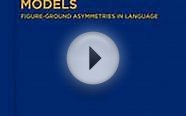
Semantics definition linguistics
Semantics can be defined as "the study of the meaning of morphemes, words, phrases and sentences."
You will sometimes see definitions for semantics like "the analysis of meaning, " To see why this is too broad, consider the following. Kim, returning home after a long day, discovers that the new puppy has crapped on the rug, and says "Oh, lovely."
We don't normally take this to mean that Kim believes that dog feces has pleasing or attractive qualities, or is delightful. Someone who doesn't know English will search the dictionary in vain for what Kim means by saying "lovely":
(ADJECTIVE): [love-li-er, love-li-est]. 1. Full of love; loving. 2. Inspiring love or affection. 3. Having pleasing or attractive qualities. 4. Enjoyable; delightful.
Obviously this is because Kim is being ironic, in the sense of "using words to convey the opposite of their literal meaning". Kim might have said "great, " or "wonderful, " or "beautiful", or "how exquisite", and none of the dictionary entries for these words will help us understand that Kim means to express disgust and annoyance. That's because a word's meaning is one thing, and Kim's meaning - what Kim means by using the word - is something else.
There are lots of other ways besides irony to use words to mean something different from what you get by putting their dictionary entries together. Yogi Berra was famous for this: "if you can't imitate him, don't copy him;" and "you can observe a lot just by watching" and dozens of others.
In fact, even when we mean what we literally say, we often - maybe always - mean something more as well. The study of "speaker meaning" - the meaning of language in its context of use - is called pragmatics, and will be the subject of the next lecture.
Philosophers have argued about "the meaning of meaning, " and especially about whether this distinction between what words mean and what people mean is fundamentally sound, or is just a convenient way of talking. Most linguists find the distinction useful, and we will follow general practice in maintaining it. However, as we will see, it is not always easy to draw the line.
Word meaning and processes for extending it
Word meanings are somewhat like game trails. Some can easily be mapped because they are used enough that a clear path has been worn. Unused trails may become overgrown and disappear. And one is always free to strike out across virgin territory; if enough other animals follow, a new trail is gradually created.
Since word meanings are not useful unless they are shared, how does this creation of new meanings work? There are a variety of common processes by which existing conventional word meanings are creatively extended or modified. When one of processes is applied commonly enough in a particular case, a new convention is created; a new "path" is worn.
Metaphor
Consider the difference in meaning between "He's a leech" and. "he's a louse." Both leech and louse are parasites that suck blood through the skin...
See also:
You might also like






